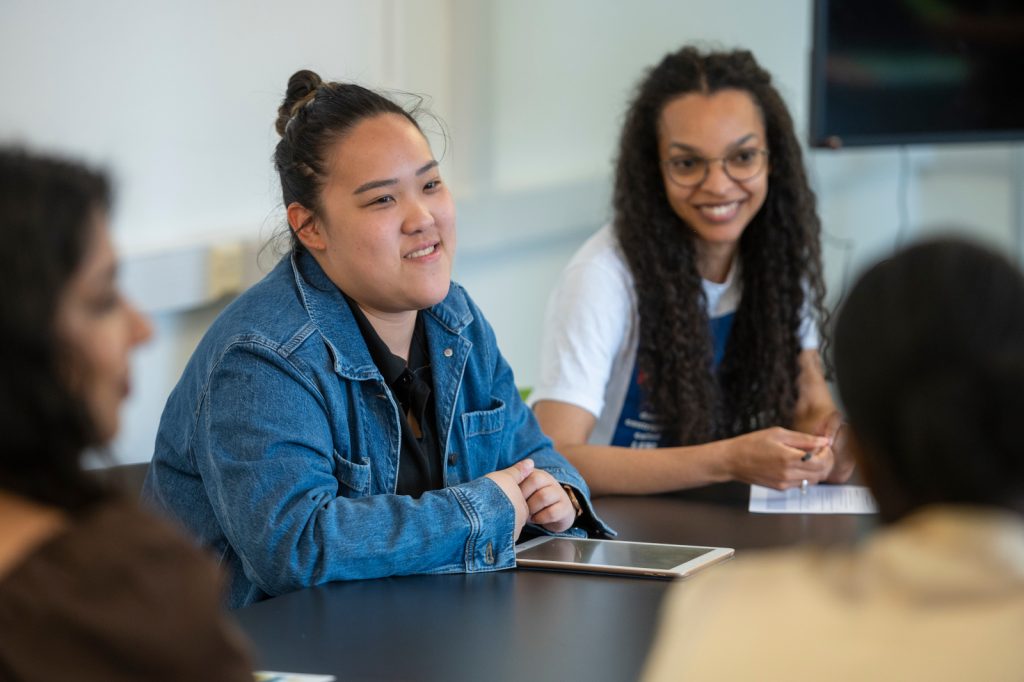Welcome
Applied Linguistics is an interdisciplinary field which mediates between the theory of language and the practice of language learning. It is also an overarching field that includes Second Language Acquisition (SLA), and as such, can shed light on the teaching and learning of a second or foreign language.
The MSc in Applied Linguistics and Second Language Acquisition is a popular course which introduces students to key issues within the field of Applied Linguistics with a focus on topics relating to second language learning. The topics represented in the course may also draw on related fields such as Psychology, Education (Language Teaching/Learning), Linguistics, and Sociolinguistics. The course is a full-time master’s programme delivered over one academic year.
Students who would be ideally suited to take this course would be those who are:
- graduates in a discipline related to Applied Linguistics and who wish to further their academic study with a focus on language learning and SLA;
- graduates of related disciplines who have an interest in the learning and teaching of English and foreign languages;
- teachers of English as a Second Language and/or Foreign Languages in all phases of education;
- educationalists interested in the study of a second language.
Apply Now
If you think this is the right course for you, you will need to complete an application through the central University website and provide samples of written work and a personal statement.
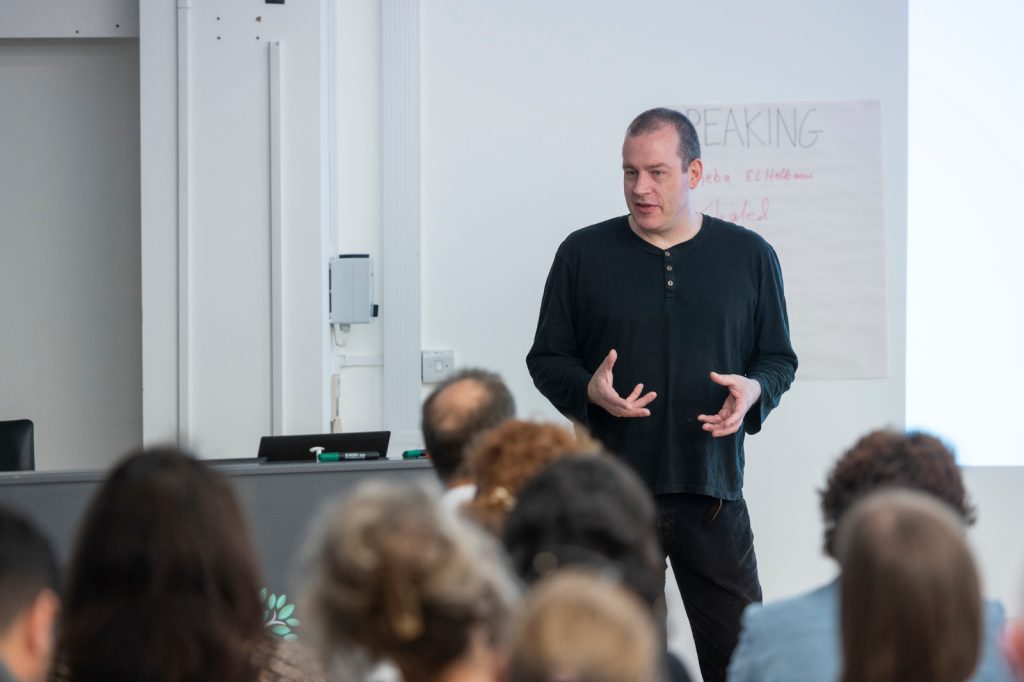
The course
The MSc in Applied Linguistics and Second Language Acquisition is designed to provide students with an opportunity to reflect and further develop their understanding of both theoretical and practical considerations in the field of language learning and teaching. It encourages students to develop a broad theoretical base reflecting current cutting edge research within Applied Linguistics. Additionally, this course makes links between the different disciplines which contribute to our knowledge of language learning and issues related to language pedagogy.
The course consists of six core taught modules, one research dissertation, and number of research methods sessions that are timetabled throughout the year:
- Foundations of SLA Theory
- First Language Acquisition & Bilingualism
- Vocabulary Acquisition
- Processing and Producing Language
- Sociolinguistics
- Individual & Group Differences
The course is assessed via six end-of-module assignments of 2,500 words each and a dissertation of between 15,000 and 20,000 words.
The following are typical dissertations by students on our course:
- Language-related challenges that undergraduate students face when entering English as Medium Instruction (EMI) universities in Japan (Ikuya Aizawa)
- The development of subject pronouns in Greek children learning English as a foreign language at pre-primary school (Faidra Faitaki)
- Investigating the influence of storybook type on parent-child interaction during L1 reading: an exploratory study (Annaliese Bagley)
- The effects of written input, audio input and explicit instruction on the acquisition of Rendaku knowledge by L2 learners of Japanese (Shao Ting Hoong)
- English as a Lingua Franca: a progression in attitudes towards the phenomenon experienced by English teachers in Germany (Ian Moore)
- Can speech stream segmentation instruction improve listening comprehension and listening self-efficacy in lower intermediate learners? (Kedi Simpson)
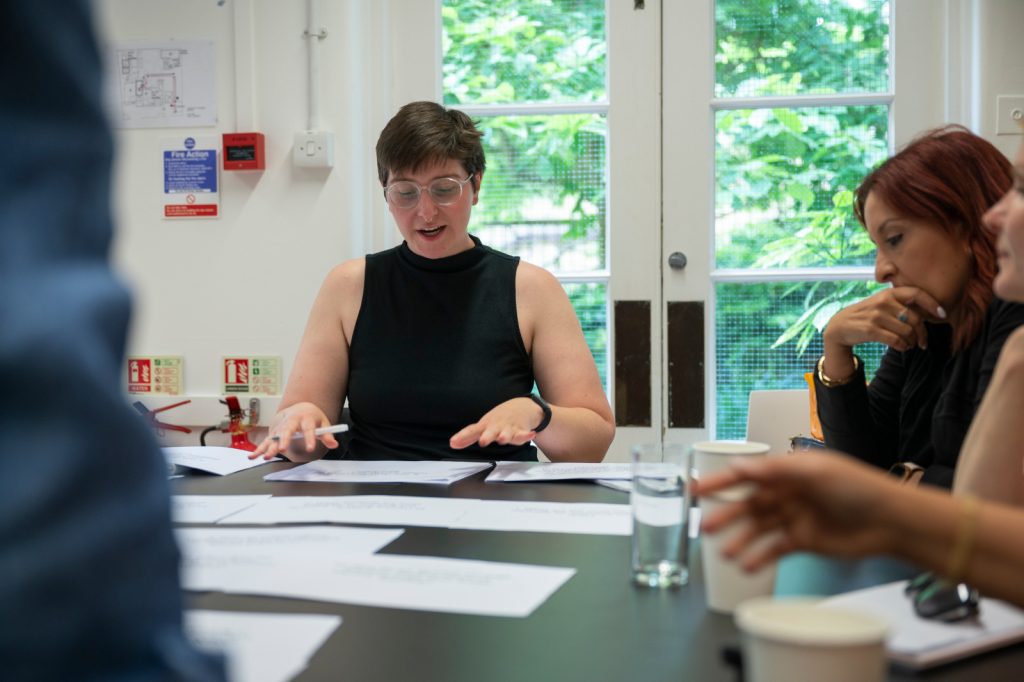
Apply Now
If you think this is the right course for you, you will need to complete an application through the central University website and provide samples of written work and a personal statement.

Meet our students
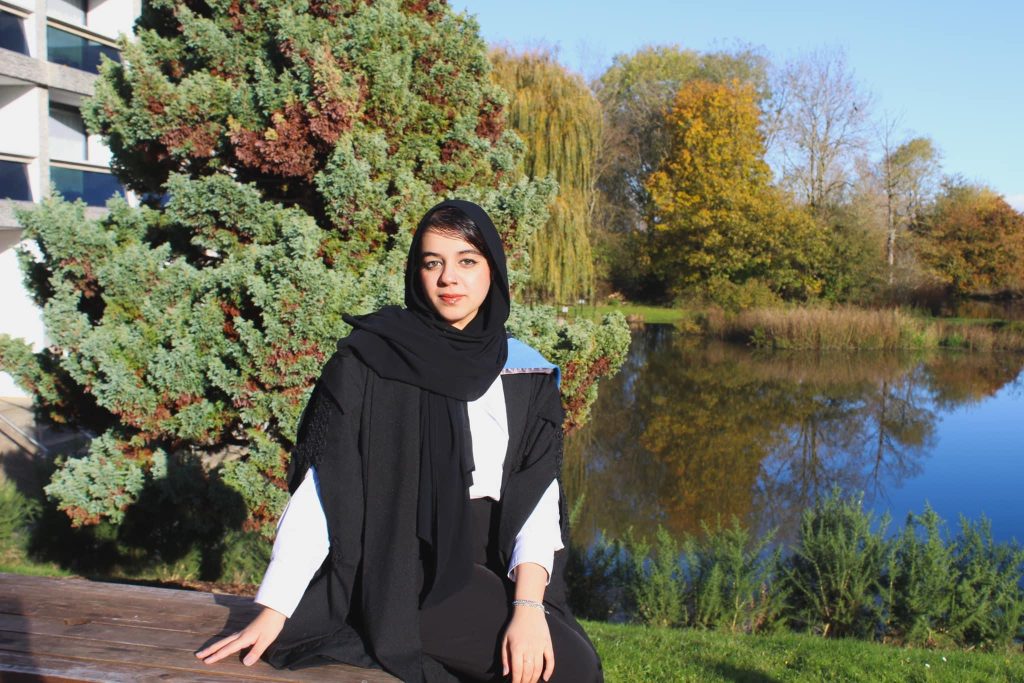
I believe the lecturers themselves are the most valuable assets of the Department. They are all so accomplished in their own subfields and are open to questions all the time, which allows for growth and learning.
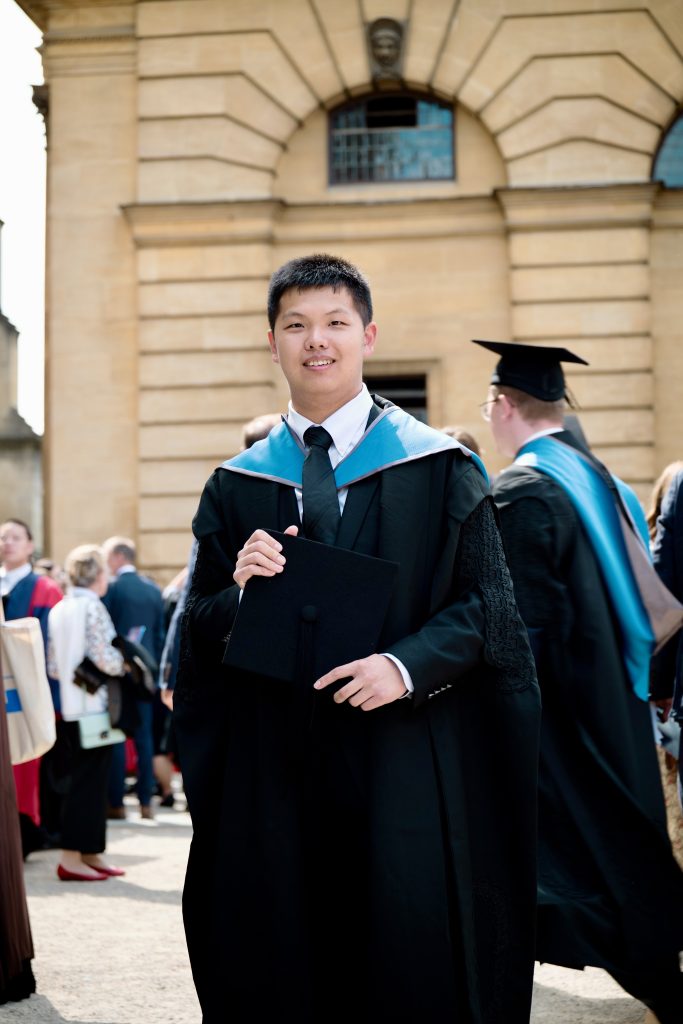
The Department’s emphasis on real-world engagement has significantly shaped my academic interests and career aspirations. It’s an intellectually stimulating environment for any educational and linguistic researcher.

The Department is filled with so many world class scholars (students included!) in so many aspects of education that you are always learning something new and having insightful conversations with people from all of the world, with different experiences, all with the goal to create better educational experiences for students everywhere!
Apply Now
If you think this is the right course for you, you will need to complete an application through the central University website and provide samples of written work and a personal statement.

Scholarships
The Department offers some part and full scholarships to attract the very strongest students who would otherwise not be able to come and study in Oxford.
Find more information on the University’s scholarship opportunities.
Clarendon Scholarships

The very strongest applicants for all our MSc programmes are automatically considered for University Clarendon scholarships. There is no separate application process. These are highly competitive and each year only one or two of our students are successful. During our initial admissions screening, supervisors nominate applicants with outstanding academic records to be considered. They then prepare a supporting statement. The Admissions tutor puts forward a shortlist of the strongest applicants to the divisional committee.
FirstRand FNB Fund Oxford Education Scholarship

When funds are available, the scholarship will provide full funding for a South African citizen to study a one year full-time MSc in Education or MSc in Applied Linguistics and Second Language Acquisition at the Department. The scholarship will be awarded based on academic excellence, leadership ability, community involvement and the candidate’s potential to be a destiny changer. The successful candidate will be a member of Wadham College. Candidates need to apply by the course’s January application deadline.
NB: Candidates who have studied outside South Africa before for degree purposes are not eligible.
Apply Now
If you think this is the right course for you, you will need to complete an application through the central University website and provide samples of written work and a personal statement.

FAQs
Can I study online or through distance learning?

It is not possible to study at a distance or online on the MSc Applied Linguistics and Second Language Acquisition. However, we offer the MSc in Applied Linguistics for Language Teaching, a specialised distance/online master’s degree in applied linguistics aimed at teachers of Teaching English to Speakers of Other Languages and modern foreign languages.
What are the backgrounds of students recruited to your programmes?

We offer a very wide range of courses. As well as a comprehensive Doctoral programme attracting students from all over the world, we offer full-time one year MSc in Education and in MSc Applied Linguistics and Second Language Acquisition (ALSLA) courses, as well as a range of part-time courses, some aimed primarily at UK teachers (e.g. MSc Learning & Teaching, MS Teacher Education) and some at distance learning (e.g., Applied Linguistics and Language Teaching). Consequently our courses cater to students from a diverse range of backgrounds.
For example in 2023/24, the Department had a total complement of 751 students of whom 408 were studying full-time and 343 were studying part-time. For 2022/23, across the MSc Education, MSc ALSLA, and DPhil programmes, approximately 21% of our students came from the UK, and the remaining 79% from the EU or overseas. The cohort from those programmes included students from Azerbaijan, Australia, China, Germany, India, Malaysia, Nigeria, Qatar, South Africa, South Korea, Thailand and the United States, among many others.
What our students share is exceptional academic achievement in their previous learning and an ambition to excel academically.
Can I study part-time?

A part-time study is possible on the MSc in Applied Linguistics for Language Teaching.
How much will it cost to study and live in Oxford?

To find out how much it will cost to undertake your studies at the University, please visit the Fees and Living Costs webpage for details.
Can I apply for more than one course?

Can I apply for your courses if I am in the process of achieving my qualification to gain entry onto the programme?

Yes, you may apply for any of our courses whilst studying for another degree. If you are successful in achieving a place on one of our programmes, we would make a conditional offer which would include the condition of you achieving your qualification. You are required to submit an interim transcript at application. However, your final outcome would need to be available prior to you commencing the course at Oxford.
English is not my first language; which higher level language qualification is acceptable? And what score do you require?

If you do not have English as your first language, we would like you to have achieved the higher level competence in English Language proficiency. Find a list of standardised English-language tests accepted by the University on their website. Your test must have been taken no more than two years before the start date of your course. We encourage applicants to apply with a successful language test however if evidence that you successfully meet the English language requirements cannot be provided with your application your application will still be considered as long as all other required documents have been submitted. Any offer of a place will require you to submit English language test results at the required level by a deadline set in the offer letter. Further information can be found by visiting the Application Guide.
Can I apply for a waiver of proof of proficiency in English?

For information on applying for a waiver of the English test requirement please visit the Application Guide.
Should I declare a college preference in my application?

How do I apply?

For a detailed explanation of the process, please read the Application Guide on the University website.
Which application deadlines apply to this programme?

Applications are accepted for the January and the March deadlines. Applicants who wish to be considered for scholarships must apply by the relevant January deadline. Applications may also be accepted after the March deadline if places remain available.
Not all of my qualifications will fit on the application form, what shall I do?

If you require more space on the application form, please contact Graduate Admissions for advice.
What should I do if there is not enough space on the application form?

I have been outside of an academic setting for some time now; who shall I have to act as my referees?

One of your references should be from your most recent academic tutor. If you are currently in employment, you would be expected to provide a reference from your employer alongside academic references which comment on your academic suitability for the course.
How is my supervisor decided?

Your supervisor will be decided by the Department following your successful offer of a place on the course on the basis of staff research interests and staff workload and availability.
Am I required to attend for interview?

Candidates will be shortlisted based on academic ability, potential and fit of interests with the course content. Interviews for shortlisted candidates are normally held 2-6 weeks after the closing date of the admissions round. You will be given advance notice of your interview date and time and we require confirmation of attendance.
All interviews will be held online via Microsoft Teams.
What will the interview be like?

The interviews are normally conducted by two interviewers on Microsoft Teams, and will focus on your academic background. You may be asked to outline your research interests and how these might be developed during the dissertation element of the course. You may also be asked about your reasons for wanting to study in this area and the reasons why this particular course is of interest to you.
When will the outcome of my application be known?

Applications will be considered by the admissions panel within the Department and decisions will be made in accordance with the following deadlines:
Applications submitted before January will receive a decision by mid March
Applications submitted before March will receive a decision by early April
You will be informed of our decision by email to ensure that you receive the outcome as soon as possible.
In the event that we are not able to offer you a place, we regret that it is not possible to provide you with feedback on your application.
Can I defer entry to a course?

The University will only consider requests for deferral of entry due to exceptional unforeseen circumstances, and only after all conditions set for the offer (both academic and financial) have been met.
Apply Now
If you think this is the right course for you, you will need to complete an application through the central University website and provide samples of written work and a personal statement.

Couldn’t find your answers under our FAQ section?
Please contact our administrative team and they will be happy to help.
Phone: +44 (0)1865 274183
Email: applied.linguistics@education.ox.ac.uk
Apply Now
If you think this is the right course for you, you will need to complete an application through the central University website and provide samples of written work and a personal statement.

